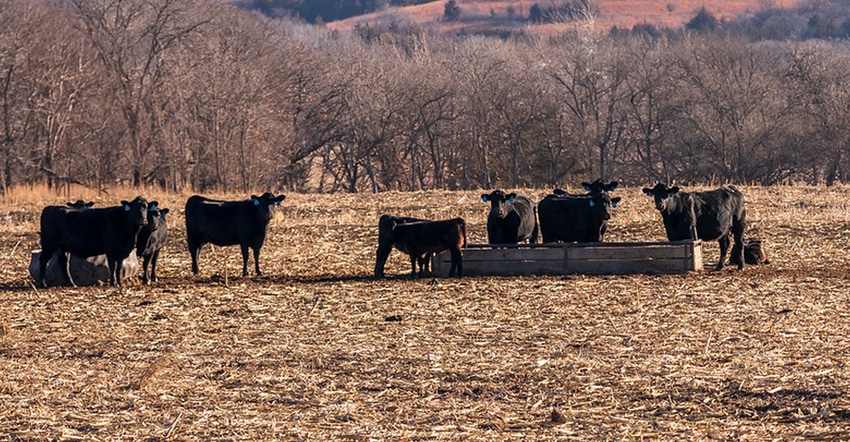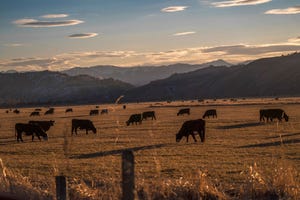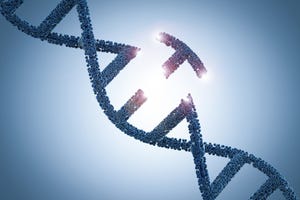Mind the nutritional demand of lactating cows
K-State Cattle Chat: Pay attention to nutrition of lactating cows for rebreeding success.
March 31, 2022

As people move through life stages, often their nutritional needs change, depending on shifts in metabolism and activity levels.
In a similar way, beef cattle that have just calved and are in lactation have a high nutritional demand on their bodies. On a recent Cattle Chat podcast, experts at Kansas State University’s Beef Cattle Institute said those animals’ overall body condition needs to be managed accordingly.
“After calving, the goal is for the cows to maintain their body condition before breeding; and if they are in a poor body condition, it is going to be hard to get them to gain weight during this time because of the lactation demands on them,” said Brad White, a veterinarian and director of the Beef Cattle Institute.
Assess feed quality
Veterinarian Bob Larson and nutritionist Phillip Lancaster agree that the first step is to assess the quality of the hay while looking at the overall condition of the cowherd postcalving.
“The amount and type of supplementation will depend a lot on the quality of the hay, because this is a time when the cows need a lot of energy and protein in their diet,” Larson said.
Lancaster added that the lack of rainfall over the winter is going to negatively impact how fast the green grass grows in the grazing pastures.
“With a looming drought, pasture green-up may be delayed or low, so we need to think about having some additional feed resources on hand,” Lancaster said. “The cattle may need to be supplemented longer into the breeding season, so they are able to maintain their body condition.”
Feed supplements
Lancaster said the amount of supplement needed will vary depending on the needs of the herd, and he encouraged producers to feed high-fiber supplements — such as distillers grains, soybean hulls and wheat midds.
“When we think about a protein supplement, we are adding protein to compensate for the low protein in the hay, which only requires 1 to 2 pounds of supplement,” Lancaster said. “But if we want to maintain the body condition score, we may also need to supplement energy, too, and so that may mean 5 to 6 pounds of supplement per head per day.”
Larson said that if the cows lose 50 to 100 pounds during this lactation period, it could make them less likely to rebreed in a timely manner.
But White added that knowing what type of feed to supplement is key, and encouraged producers to work with a nutritionist to come up with a plan.
White said, “If you supplement the herd with the wrong type or amount of feed, it may actually decrease the digestibility of hay and be counterproductive.”
To hear the full discussion, listen to the Cattle Chat podcast podcast at bit.ly/cattlechat031822.
Source: Kansas State University Research and Extension is solely responsible for the information provided and is wholly owned by the source. Informa Business Media and all its subsidiaries are not responsible for any of the content contained in this information asset.
You May Also Like


.png?width=300&auto=webp&quality=80&disable=upscale)
